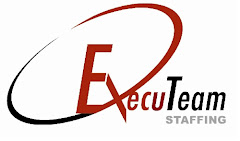
Giving a limp handshake, letting your eyes wander and fidgeting are just a few of the subtle blunders that can botch your success in a job interview. Although you may have been unaware you were doing these things, interviewers who pick up on negative nonverbal communication are likely to doubt your fit for the job.
Nonverbal communication can be judged just as much as, and sometimes even more harshly than, the responses you give to questions you're asked during interviews. It can even be the single factor that helps hiring managers decide between you and another candidate when you're both equally qualified for the job. That's why it's so important to be mindful about your posture, facial expression and other behaviors.
"The most important idea is to project confidence and professionalism," says Heather Krasna, author of "Jobs That Matter: Find a Stable, Fulfilling Career in Public Service."
"If you find yourself becoming very nervous about interviewing, realize that this is normal. Practice interviewing in front of a mirror, on video or with a friend or career coach until you feel a bit more comfortable," she suggests.
In her book, Krasna offers the following tips for ensuring positive, appropriate and polite nonverbal communication:
• Handshake: A firm handshake is considered a sign of confidence. Take the other person's hand in your right hand -- don't use both hands -- so that the space between your thumb and first finger touches theirs. Give a firm, but not crushing squeeze, and shake the person's hand up and down slightly, once. If you have sweaty hands, be sure to dry them before your interview.
• Posture and physical distance: When sitting in a chair, sit up straight or lean forward slightly; don't slouch. If you cross your legs, do it so that one knee is stacked on top of the other or cross your ankles. Do not cross your legs so that one foot is on top of your other knee. Alternatively, keep both feet on the floor. Do not stretch your legs out in front of you or sit with your legs spread far apart -- it looks too casual. When standing near someone, about 3 feet is standard in most parts of the United States. Standing closer than this can make others feel uncomfortable.
• Arms and hands: You can "talk with your hands" to some extent, but do not do so to the point of distracting your interviewer. Sitting with your arms crossed in front of you can look defensive. Instead, try to have a more open posture. Don't fidget, play with your hair or pen or bite your nails.
• Eye contact: Look in the eyes of the person interviewing you. Looking down or away frequently gives a message of not being confident or being confused. Rolling your eyes up is considered a sign of disrespect. Don't stare intensely at the interviewer; just look him or her in the eye as much as possible.
• Facial expression: Smiling is an important way of showing that you are friendly and enthusiastic about the position. Smile at the beginning and the end of the interview at a minimum. I can't emphasize this enough -- I know several people for whom lack of smiling was a major barrier to employment.
• Mirroring: You can also take note of the posture and expressions of your interviewer, and adopt some of his or her tone. Be careful, though -- even if an interviewer is friendly and casual, that does not mean you should be too casual. It is still a professional job interview.
-Selena Dehne














